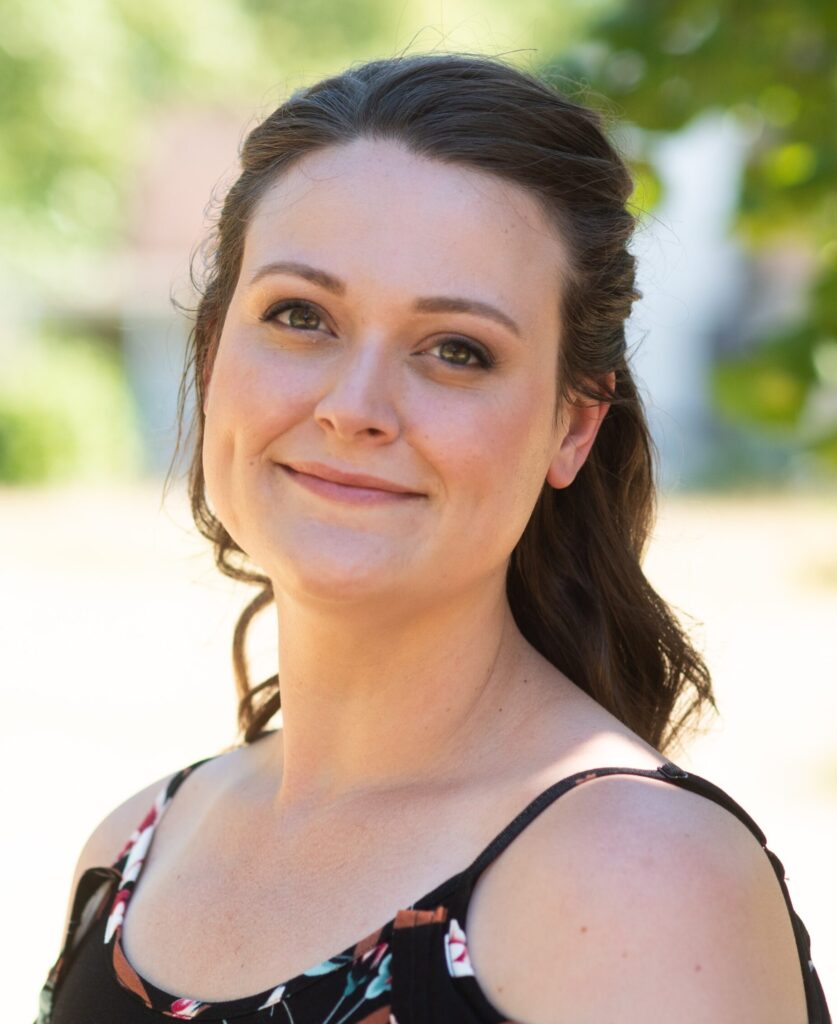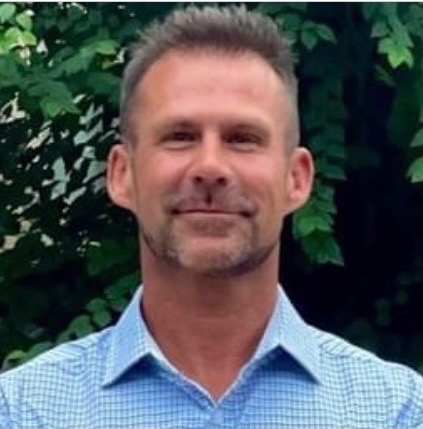- About Us
- Programs
- Our Facility
- Contact Us
- Resources
- Addiction Treatment
- Portland, Oregon Benzodiazepine Treatment Centers
- Benzodiazepine Addiction Assessment: Your First Step Toward Safe Recovery
- A Comprehensive Guide to Benzodiazepine Addiction and Recovery
- Heroin Detox: Safe and Effective Treatment at Pacific Crest Trail Detox
- Vicodin Detox: Safe and Effective Recovery from Painkiller Dependency
- Medical Detox Rehab: Safe and Supportive Treatment Centers
- Detox Centers Near Me: Finding Local Facilities for Professional Care
- Detox Programs Near Me: Finding Local Facilities for Professional Care
- Ativan Detox: Managing Withdrawal Symptoms in Recovery
- Hydrocodone Detox: Safely Overcoming Painkiller Addiction for Lasting Sobriety
- Cocaine Detox: Understanding Withdrawal Symptoms and Recovery
- Detox Aftercare Programs: Continuing Support for Long-Term Recovery
- Detox for Meth Addiction: Effective Treatment Strategies for Recovery
- Drug Detox: Effective Methods for Safe Substance Withdrawal and Recovery
- Drug Detox Programs: Choosing the Right Path for Your Recovery
- Benzodiazepine Addiction Aftercare: Ensuring Continued Success in Long-Term Sobriety
- Benzodiazepine Addiction Treatment: Proven Methods for Lasting Recovery
- Demerol Detox: Safe and Effective Withdrawal
- Detox Treatment Plans: Creating Personalized Recovery Strategies
- Xanax Detox: Managing Withdrawal from Alprazolam Addiction Safely
- Oxycodone Detox: Breaking Free from OxyContin Addiction
- Dilaudid Detox: Managing Withdrawal from Hydromorphone Addiction
- Tramadol Detox: Navigating Withdrawal and Recovery
- Detox for Painkiller Addiction: What to Expect
- Klonopin Detox: Safely Overcoming Clonazepam Dependency
- Benzodiazepine Addiction Effects: Understanding the Impact on Health & Well-Being
- Barbiturates Detox: Breaking Free from Sedative Dependency Safely
- Detox and Counseling Services: Combining Therapy with Detox for Recovery
- Amphetamine Detox: Safely Overcoming Stimulant Addiction
- Partial Hospitalization for Cocaine Addiction: Intensive Treatment for Managing Dependency
- Partial Hospitalization for Tramadol Addiction: Managing Withdrawal Symptoms Safely
- Benzodiazepine Addiction Clinics: Tailored Recovery Programs for Lasting Results
- Partial Hospitalization for Marijuana Addiction: Structured Path to Sobriety
- Morphine Detox: Managing Withdrawal Symptoms
- benzodiazepine addiction treatment plan
- Marijuana Detox: What to Expect
- pcp detox
- partial hospitalization for borderline personality disorder
- Partial Hospitalization for Fentanyl Addiction Recovery: Breaking Free
- benzodiazepine addiction signs
- partial hospitalization for substance abuse
- Partial Hospitalization for Bipolar Disorder: Managing Mood Swings with Structured Care
- Partial Hospitalization for PTSD: The Trauma Recovery Journey
- Partial Hospitalization for Trauma Recovery: Comprehensive Healing for Trauma Survivors
- Prescription Drug Abuse
- Therapy & Counseling
- Substance Abuse & Recovery
- Outpatient Program for Relapse Prevention: Proven Recovery Strategies
- Intensive Outpatient vs. Partial Hospitalization: Choosing the Right Treatment
- Outpatient Drug Programs in Milwaukie, OR
- Benzodiazepine Addiction Programs: Structured Pathways to Sobriety
- Partial Hospitalization Program for Opioid Addiction: What to Expect
- Partial Hospitalization Program for Xanax Addiction: Managing Dependence with Structured Care
- Partial Hospitalization for Substance Abuse Near Me: Finding Local Treatment Programs
- outpatient drug program for veterans
- Substance Use Disorders
- Medical Detox: A Guide to Safe and Effective Substance Withdrawal
- Opiate Detox: A Safe Path to Overcoming Opioid Addiction
- Detox Treatment Centers: Finding the Best Care for Substance Withdrawal
- Methadone Detox: Safely Overcoming Opioid Dependency with Proven Treatment
- Substance Abuse Detox: Tailored Programs for Your Recovery
- Detox Therapies: Exploring Effective Methods for Substance Withdrawal
- Medical Drug Detox: The First Step Toward Recovery
- Codeine Detox: A Safe & Effective Path to Recovery from Opioid Addiction
- Fentanyl Detox: Understanding Opioid Dependency and Recovery
- Mental Health Disorders
- Partial Hospitalization Programs: Your Path to Recovery
- The Role of PCTD’s Intensive Outpatient Program in Recovery
- Intensive Outpatient Program for Mental Health in Addiction Recovery
- Outpatient Program for Co-Occurring Disorders: Managing Mental Health and Addiction Together
- Partial Hospitalization for Mental Health and Addiction Recovery: What to Expect
- Recovery
- PCTD’s Intensive Outpatient Program for Substance Abuse Recovery
- Outpatient Drug Program for LGBTQ+: Inclusive and Compassionate Recovery for All Communities
- Outpatient Family Therapy: A Holistic Approach to Recovery
- Intensive Outpatient Program for Professionals: Balancing Work and Recovery
- Partial Hospitalization Program for Hydrocodone Addiction: Managing Withdrawal and Recovery
- Benzodiazepine Addiction Clinics: Tailored Recovery Programs for Lasting Results
- partial hospitalization for drug addiction
- Benzodiazepine Rehab: Inpatient and Outpatient Programs for Lasting Recovery
- Partial Hospitalization for Heroin Addiction: Intensive Recovery Program for Opioid Addiction
- Partial Hospitalization Program for Meth Addiction: Structured Care for Recovery
- Trauma & PTSD
- Alcoholism & Alcohol-Related Issues
- Anxiety & Depression
- Mental Health & Wellness
- Blog
- Addiction Treatment
- About Us
- Programs
- Our Facility
- Contact Us
- Resources
- Addiction Treatment
- Portland, Oregon Benzodiazepine Treatment Centers
- Benzodiazepine Addiction Assessment: Your First Step Toward Safe Recovery
- A Comprehensive Guide to Benzodiazepine Addiction and Recovery
- Heroin Detox: Safe and Effective Treatment at Pacific Crest Trail Detox
- Vicodin Detox: Safe and Effective Recovery from Painkiller Dependency
- Medical Detox Rehab: Safe and Supportive Treatment Centers
- Detox Centers Near Me: Finding Local Facilities for Professional Care
- Detox Programs Near Me: Finding Local Facilities for Professional Care
- Ativan Detox: Managing Withdrawal Symptoms in Recovery
- Hydrocodone Detox: Safely Overcoming Painkiller Addiction for Lasting Sobriety
- Cocaine Detox: Understanding Withdrawal Symptoms and Recovery
- Detox Aftercare Programs: Continuing Support for Long-Term Recovery
- Detox for Meth Addiction: Effective Treatment Strategies for Recovery
- Drug Detox: Effective Methods for Safe Substance Withdrawal and Recovery
- Drug Detox Programs: Choosing the Right Path for Your Recovery
- Benzodiazepine Addiction Aftercare: Ensuring Continued Success in Long-Term Sobriety
- Benzodiazepine Addiction Treatment: Proven Methods for Lasting Recovery
- Demerol Detox: Safe and Effective Withdrawal
- Detox Treatment Plans: Creating Personalized Recovery Strategies
- Xanax Detox: Managing Withdrawal from Alprazolam Addiction Safely
- Oxycodone Detox: Breaking Free from OxyContin Addiction
- Dilaudid Detox: Managing Withdrawal from Hydromorphone Addiction
- Tramadol Detox: Navigating Withdrawal and Recovery
- Detox for Painkiller Addiction: What to Expect
- Klonopin Detox: Safely Overcoming Clonazepam Dependency
- Benzodiazepine Addiction Effects: Understanding the Impact on Health & Well-Being
- Barbiturates Detox: Breaking Free from Sedative Dependency Safely
- Detox and Counseling Services: Combining Therapy with Detox for Recovery
- Amphetamine Detox: Safely Overcoming Stimulant Addiction
- Partial Hospitalization for Cocaine Addiction: Intensive Treatment for Managing Dependency
- Partial Hospitalization for Tramadol Addiction: Managing Withdrawal Symptoms Safely
- Benzodiazepine Addiction Clinics: Tailored Recovery Programs for Lasting Results
- Partial Hospitalization for Marijuana Addiction: Structured Path to Sobriety
- Morphine Detox: Managing Withdrawal Symptoms
- benzodiazepine addiction treatment plan
- Marijuana Detox: What to Expect
- pcp detox
- partial hospitalization for borderline personality disorder
- Partial Hospitalization for Fentanyl Addiction Recovery: Breaking Free
- benzodiazepine addiction signs
- partial hospitalization for substance abuse
- Partial Hospitalization for Bipolar Disorder: Managing Mood Swings with Structured Care
- Partial Hospitalization for PTSD: The Trauma Recovery Journey
- Partial Hospitalization for Trauma Recovery: Comprehensive Healing for Trauma Survivors
- Prescription Drug Abuse
- Therapy & Counseling
- Substance Abuse & Recovery
- Outpatient Program for Relapse Prevention: Proven Recovery Strategies
- Intensive Outpatient vs. Partial Hospitalization: Choosing the Right Treatment
- Outpatient Drug Programs in Milwaukie, OR
- Benzodiazepine Addiction Programs: Structured Pathways to Sobriety
- Partial Hospitalization Program for Opioid Addiction: What to Expect
- Partial Hospitalization Program for Xanax Addiction: Managing Dependence with Structured Care
- Partial Hospitalization for Substance Abuse Near Me: Finding Local Treatment Programs
- outpatient drug program for veterans
- Substance Use Disorders
- Medical Detox: A Guide to Safe and Effective Substance Withdrawal
- Opiate Detox: A Safe Path to Overcoming Opioid Addiction
- Detox Treatment Centers: Finding the Best Care for Substance Withdrawal
- Methadone Detox: Safely Overcoming Opioid Dependency with Proven Treatment
- Substance Abuse Detox: Tailored Programs for Your Recovery
- Detox Therapies: Exploring Effective Methods for Substance Withdrawal
- Medical Drug Detox: The First Step Toward Recovery
- Codeine Detox: A Safe & Effective Path to Recovery from Opioid Addiction
- Fentanyl Detox: Understanding Opioid Dependency and Recovery
- Mental Health Disorders
- Partial Hospitalization Programs: Your Path to Recovery
- The Role of PCTD’s Intensive Outpatient Program in Recovery
- Intensive Outpatient Program for Mental Health in Addiction Recovery
- Outpatient Program for Co-Occurring Disorders: Managing Mental Health and Addiction Together
- Partial Hospitalization for Mental Health and Addiction Recovery: What to Expect
- Recovery
- PCTD’s Intensive Outpatient Program for Substance Abuse Recovery
- Outpatient Drug Program for LGBTQ+: Inclusive and Compassionate Recovery for All Communities
- Outpatient Family Therapy: A Holistic Approach to Recovery
- Intensive Outpatient Program for Professionals: Balancing Work and Recovery
- Partial Hospitalization Program for Hydrocodone Addiction: Managing Withdrawal and Recovery
- Benzodiazepine Addiction Clinics: Tailored Recovery Programs for Lasting Results
- partial hospitalization for drug addiction
- Benzodiazepine Rehab: Inpatient and Outpatient Programs for Lasting Recovery
- Partial Hospitalization for Heroin Addiction: Intensive Recovery Program for Opioid Addiction
- Partial Hospitalization Program for Meth Addiction: Structured Care for Recovery
- Trauma & PTSD
- Alcoholism & Alcohol-Related Issues
- Anxiety & Depression
- Mental Health & Wellness
- Blog
- Addiction Treatment









